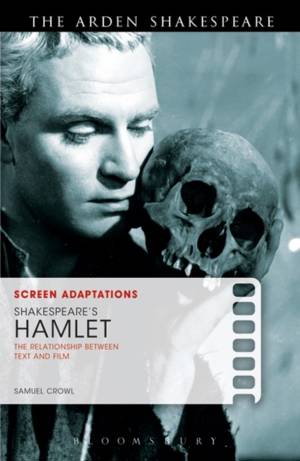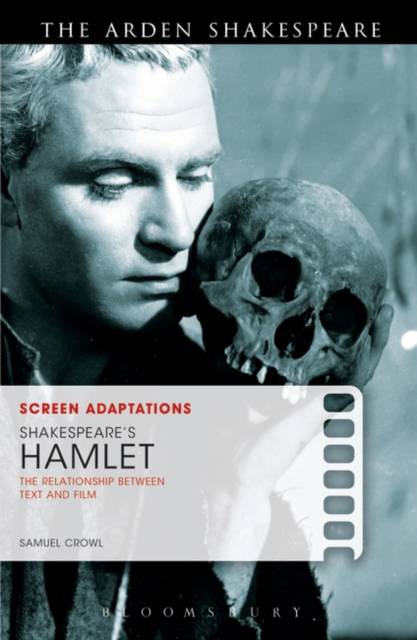
Bedankt voor het vertrouwen het afgelopen jaar! Om jou te bedanken bieden we GRATIS verzending (in België) aan op alles gedurende de hele maand januari.
- Afhalen na 1 uur in een winkel met voorraad
- In januari gratis thuislevering in België
- Ruim aanbod met 7 miljoen producten
Bedankt voor het vertrouwen het afgelopen jaar! Om jou te bedanken bieden we GRATIS verzending (in België) aan op alles gedurende de hele maand januari.
- Afhalen na 1 uur in een winkel met voorraad
- In januari gratis thuislevering in België
- Ruim aanbod met 7 miljoen producten
Zoeken
€ 59,45
+ 118 punten
Uitvoering
Omschrijving
Hamlet is the most often produced play in the western literary canon, and a fertile global source for film adaptation. Samuel Crowl, a noted scholar of Shakespeare on film, unpacks the process of adapting from text to screen through concentrating on two sharply contrasting film versions of Hamlet by Laurence Olivier (1948) and Kenneth Branagh (1996). The films' socio-political contexts are explored, and the importance of their screenplay, film score, setting, cinematography and editing examined.
Offering an analysis of two of the most important figures in the history of film adaptations of Shakespeare, this study seeks to understand a variety of cinematic approaches to translating Shakespeare's "words, words, words+? into film's particular grammar and rhetoric
Offering an analysis of two of the most important figures in the history of film adaptations of Shakespeare, this study seeks to understand a variety of cinematic approaches to translating Shakespeare's "words, words, words+? into film's particular grammar and rhetoric
Specificaties
Betrokkenen
- Auteur(s):
- Uitgeverij:
Inhoud
- Aantal bladzijden:
- 176
- Taal:
- Engels
- Reeks:
Eigenschappen
- Productcode (EAN):
- 9781408129555
- Verschijningsdatum:
- 27/03/2014
- Uitvoering:
- Paperback
- Formaat:
- Trade paperback (VS)
- Afmetingen:
- 127 mm x 196 mm
- Gewicht:
- 181 g

Alleen bij Standaard Boekhandel
+ 118 punten op je klantenkaart van Standaard Boekhandel
Beoordelingen
We publiceren alleen reviews die voldoen aan de voorwaarden voor reviews. Bekijk onze voorwaarden voor reviews.









